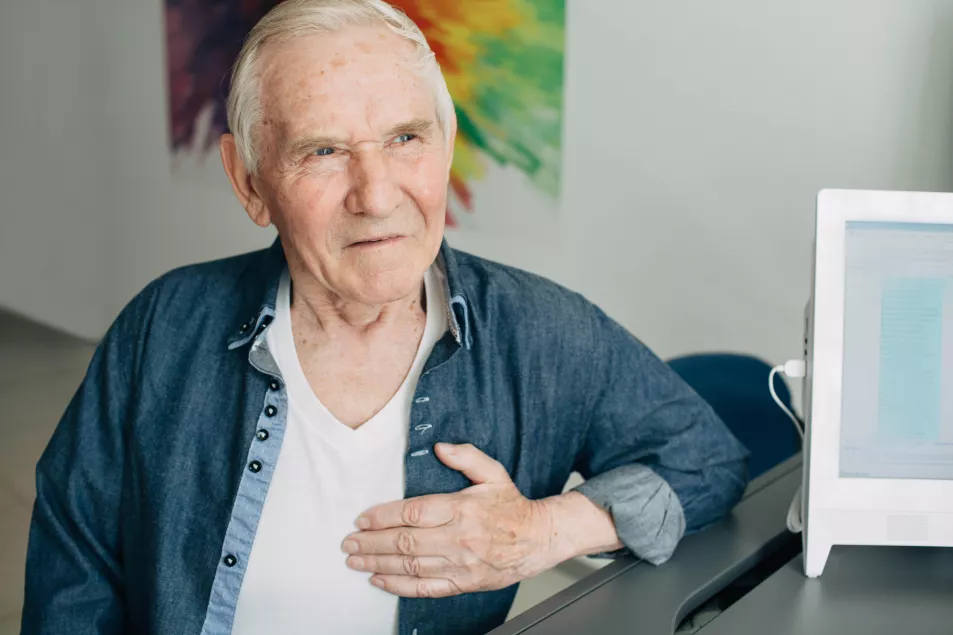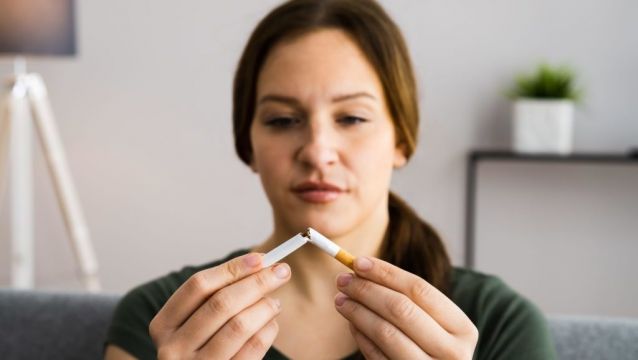Less people could be quitting smoking since they started working from home during the pandemic, new research suggests.
The decline in smoking rates across England has “stagnated”, with fewer people quitting plus more young people picking up the habit – according to experts at University College London (UCL), who analysed data from 2020 and 2022.
They found that before the pandemic, smoking prevalence fell by 5.2 per cent per year, but the rate of decline slowed to just 0.3 per cent per year during it.
Lead author Dr Sarah Jackson from UCL, said: “These findings make bold policy action more urgent. The Government was already not on track to meet its target for England to be smoke-free by 2030.”
Here’s what smoking can do to different parts of your body…
Cardiovascular system

According to Dr Suhail Hussain, a private GP based in Hertfordshire, smoking raises blood pressure, damages blood vessels, and increases the risk of heart disease, stroke and heart attacks. “It can lead to the formation of plaque in the arteries, restricting blood flow,” he said – which can be particularly dangerous if clots form.
Professor Mark Whiteley, leading venous surgeon and founder of The Whiteley Clinic, said: “Whether from cigarettes or vapes, when nicotine is inhaled, it causes constriction of the blood vessels.
Smoking makes it harder to recover from illnesses such as flu, covid & infections which are worse in winter.
For someone admitted to hospital this winter, quitting is the best thing for recovery. @NENC_NHS is #HeretoHelp
Visit https://t.co/yRNWNIOo1n for support to quit. pic.twitter.com/0QBAv3KAmY— Fresh - Making Smoking History (@FreshSmokeFree) December 14, 2023
“For blood to flow easily around the body, the arteries and veins need to be able to relax when necessary, enabling blood to be directed to where it is needed, and returned to get rid of waste products. Nicotine reduces this relaxation, hampering the smooth flowing of the circulation.”
Jim Pattison, policy assistant at Action on Smoking and Health (ASH), a public health charity set up by the Royal College of Physicians to end the harm caused by tobacco, added: “Smoking is the leading behavioural risk for cardiovascular disease (CVD) and smokers have a fourfold higher risk of CVD than non-smokers.”
Lungs

“Tobacco smoke causes a range of respiratory diseases, including lung cancer and chronic obstructive pulmonary disease (COPD). It is also known to increase the risk of asthma (as well as being a major trigger for asthma symptoms), tuberculosis (TB) and pneumonia,” said Pattison.
“Smoking also damages the alveoli (air sacs) in our lungs, which prevents the proper intake of oxygen, often resulting in breathlessness. In 2017, 37 per cent of all deaths from respiratory diseases in England were estimated to be attributable to smoking.”
Reproductive system
“In both men and women, smoking can affect fertility,” said Dr Anita Raja, an NHS GP based in Birmingham. “In women, it can lead to reduced fertility, ectopic pregnancy, and complications during pregnancy. In men, it can cause erectile dysfunction and lower sperm count.”
Bones
Smoking can also affect bone health. “Smoking weakens bones, making them more prone to fractures and osteoporosis,” said Raja.
Brain

“Smoking has been found to accelerate the ageing of the brain,” said Abbas Kanani, a pharmacist at Chemist Click, pointing out that the habit is associated with a higher risk of cognitive decline and dementia in older adults.
Studies suggest metals – such as zinc, iron and copper, found in cigarette smoke – can build up in the body, potentially leading to impaired cognitive function. Research has also suggested smoking can cause a “decrease in brain volume”, Kanani added.
Skin
“Smoking is associated with premature skin ageing, delayed wound healing, and increased infections. Smoking chronically deprives the skin of oxygen and nutrients and people who smoke have less blood flow to the face, which means their skin gets less oxygen and fewer nutrients,” said Kanani.
Mouth and teeth
Smoking is also associated with poorer oral health. “It causes a staining of teeth, a wearing away of gums, and is responsible for [many] oral cancer cases, which can also result in severe disfigurement,” said Pattison.
Eyes
“Tobacco smoke contains a toxic cocktail of hazardous chemicals which, with continued exposure to our eyes, can result in major eye damage,” said Pattison.
For example, it’s associated with a higher risk of conditions including age-related macular degeneration (AMD), cataracts, glaucoma and diabetic retinopathy.
It’s never too late to quit
The good news is, it’s never too late to quit and the damaging effects can improve after stopping smoking. Information and support for quitting smoking is available free of charge from the HSE website.







